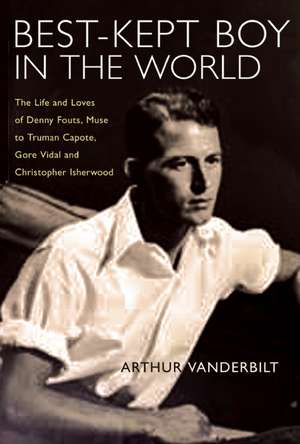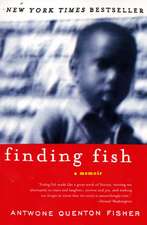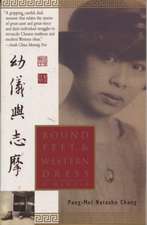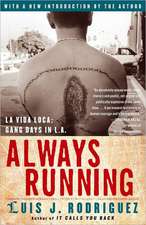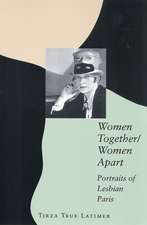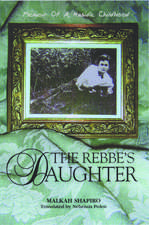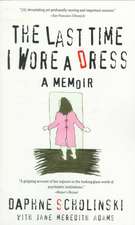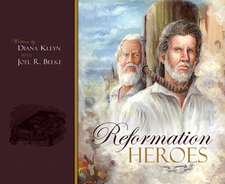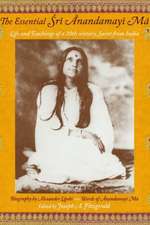Best-Kept Boy in the World: The Essential Guide to Diagnosis, Treatment, and Recovery
Autor Arthur Vanderbilten Limba Engleză Paperback – 24 noi 2014
The Best-Kept Boy in the World is the first book ever written about Denham (Denny) Fouts (1914-1948), the twentieth century's most famous male prostitute. He was a socialite and muse whose extraordinary life started off humbly in Jacksonville, Florida. But in short order he befriend (and bedded) the rich and celebrated and in the process conquered the world.
No less an august figure than the young Gore Vidal was enchanted by Denny's special charms. He twice modeled characters on Denny in his fiction, saying it was a pity that Denny never wrote a memoir. To Vidal he was "un homme fatal."
Truman Capote, who devoted a third of Answered Prayers to Denny's life story, found that "to watch him walk into a room was an experience. He was beyond being good-looking; he was the single most charming-looking person I've ever seen."
Writer Christopher Isherwood, who Denny considered his best friend, was more to the point: he called him "the most expensive male prostitute in the world." He thus served as the source for the character Paul in Isherwood's novel Down There on a Visit and appears as himself frequently in his published diaries.
But Denny's conquests were not limited to the US alone.
Somerset Maugham in England has Denny in his celebrated novel The Razor's Edge.
To King Paul of Greece he was "my dear Denham" or "Darling Denham," and the King's telegrams to Denny from the Royal Palace always were signed "love, Paul."
Peter Watson, the wealthy financial backer of the popular British literary magazine Horizon, had an erection whenever he was in the same room with Denny.
The artist Michael Wishart met Denny for the first time at a party in Paris and realized instantly he was in love and that "the only place in the world I wanted to be was in Denham's bedroom."
And Lord Tredegar, one of the largest landowners in Great Britain, saw Denny being led by the police through the lobby of an expensive hotel in Capri, convinced the police to let him pay the bills Denny owed, and then took Denny to accompany him and his wife as they continued on their tour of the world.
It was because of lofty connections such as these that Capote echoed Isherwood's remark by quipping that Denny was the "best-kept boy in the world," thereby coming up with the title of the chapter in Answered Prayers about Denny.
In his short life, Denny achieved a mythic status, and this book follows him into his rarified world of barons and shipping tycoons, lords, princes, heirs of great fortunes, artists, and authors. Here is the story of an American original, a story with an amazing cast of unforgettable characters and extraordinary settings, the book Gore Vidal wished Denny had written.
No less an august figure than the young Gore Vidal was enchanted by Denny's special charms. He twice modeled characters on Denny in his fiction, saying it was a pity that Denny never wrote a memoir. To Vidal he was "un homme fatal."
Truman Capote, who devoted a third of Answered Prayers to Denny's life story, found that "to watch him walk into a room was an experience. He was beyond being good-looking; he was the single most charming-looking person I've ever seen."
Writer Christopher Isherwood, who Denny considered his best friend, was more to the point: he called him "the most expensive male prostitute in the world." He thus served as the source for the character Paul in Isherwood's novel Down There on a Visit and appears as himself frequently in his published diaries.
But Denny's conquests were not limited to the US alone.
Somerset Maugham in England has Denny in his celebrated novel The Razor's Edge.
To King Paul of Greece he was "my dear Denham" or "Darling Denham," and the King's telegrams to Denny from the Royal Palace always were signed "love, Paul."
Peter Watson, the wealthy financial backer of the popular British literary magazine Horizon, had an erection whenever he was in the same room with Denny.
The artist Michael Wishart met Denny for the first time at a party in Paris and realized instantly he was in love and that "the only place in the world I wanted to be was in Denham's bedroom."
And Lord Tredegar, one of the largest landowners in Great Britain, saw Denny being led by the police through the lobby of an expensive hotel in Capri, convinced the police to let him pay the bills Denny owed, and then took Denny to accompany him and his wife as they continued on their tour of the world.
It was because of lofty connections such as these that Capote echoed Isherwood's remark by quipping that Denny was the "best-kept boy in the world," thereby coming up with the title of the chapter in Answered Prayers about Denny.
In his short life, Denny achieved a mythic status, and this book follows him into his rarified world of barons and shipping tycoons, lords, princes, heirs of great fortunes, artists, and authors. Here is the story of an American original, a story with an amazing cast of unforgettable characters and extraordinary settings, the book Gore Vidal wished Denny had written.
Preț: 128.85 lei
Nou
Puncte Express: 193
Preț estimativ în valută:
24.65€ • 25.81$ • 20.40£
24.65€ • 25.81$ • 20.40£
Carte tipărită la comandă
Livrare economică 08-22 aprilie
Preluare comenzi: 021 569.72.76
Specificații
ISBN-13: 9781936833412
ISBN-10: 1936833417
Pagini: 190
Ilustrații: B&W photos
Dimensiuni: 137 x 213 x 15 mm
Greutate: 0.23 kg
Editura: Riverdale Avenue Books
ISBN-10: 1936833417
Pagini: 190
Ilustrații: B&W photos
Dimensiuni: 137 x 213 x 15 mm
Greutate: 0.23 kg
Editura: Riverdale Avenue Books
Notă biografică
Arthur Vanderbilt, an attorney and author of 10 books, lives in New Jersey. His books have been selections of the Book-of-the-Month Club and other book clubs, the Reader's Digest, serialized in newspapers and magazines both here and abroad, published in foreign editions, and optioned for television movies.
Extras
Preface
It was a pity, Gore Vidal once remarked, that Denham Fouts never wrote a memoir. Vidal described Denny as "un homme fatal".
Truman Capote found that "to watch him walk into a room was an experience. He was beyond being good-looking; he was the single most charming-looking person I've ever seen." Capote loved to conjecture that "had Denham Fouts yielded to Hitler's advances there would have been no World War Two".
Jimmie Daniels, the nightclub singer who performed at his own Harlem club that bore his name, thought Denny "was about the most beautiful boy anybody had ever seen. His skin always looked as if it had just been scrubbed; it seemed to have no pores at all, it was so smooth."
To King Paul of Greece he was "my dear Denham" or "Darling Denham", and the King's telegrams to Denny from the Royal Palace always were signed "love Paul".
Peter Watson, the wealthy financial backer of the popular British literary magazine Horizon, had an erection whenever he was in the same room with Denny.
The artist Michael Wishart met Denny for the first time at a party in Paris and realized instantly he was in love and that "the only place in the world I wanted to be was in Denham's bedroom".
Best-selling author Glenway Wescott thought Denny "absolutely enchanting and ridiculously good-looking. . . . He had the most delicious body odor; I once swiped one of his handkerchiefs."
Lord Tredegar, one of the largest landowners in Great Britain, saw Denny being led by the police through the lobby of an expensive hotel on Capri, convinced the police to let him pay the bills Denny owed, and then took Denny to accompany him and his wife as they continued on their tour of the world.
Christopher Isherwood, who Denny considered his best friend, called him "the most expensive male prostitute in the world".
Today, someone who projects such an instant and potent power of attraction could forge a successful career, perhaps as a male model, as a character in a daytime soap opera, as a tabloid celebrity, as a television or movie star, maybe even as an acclaimed actor. But Denny was born in 1914 when such options were not yet available to those rare individuals endowed with this sort of sexual magnetism. He never did write a memoir that would have told his strange story, that may have explained how it felt to possess those magical powers, to occupy the thoughts of another, to become the obsession of their lives. How would it feel to be Aschenbach's Tadzio in Thomas Mann's Death in Venice? To be Humbert's Lolita in Nabokov's masterpiece? Jay Gatsby's Daisy in The Great Gatsby?
"The mass of men," Thoreau was brave enough and honest enough to write in Walden, "lead lives of quiet desperation." Most of us come, go, and are gone, our lives lived in shades of gray no more distinguishable, no more memorable, than the squirrels in a park on a coming of winter morning. Denny was one of those rare individuals who, whatever his faults, brought color into the black and white etchings of everyday life.
Denny never did write his own story, but he does move through many memoirs of the times. And for some of the most renowned authors of those times, he was a muse, and that color he brought into a squirrel-gray world inspired them to capture him in their prose. Denny is "Paul" in Christopher Isherwood's Down There on a Visit. He is a character in Gore Vidal's novel The Judgment of Paris, and in his short story "Pages from an Abandoned Journal". He appears in Truman Capote's infamous Answered Prayers on which the author was working, or not working, when he died. He was proud to find himself a character in Somerset Maugham's The Razor's Edge.
To be immortalized in a story by a famed author would be enough to earn a footnote in literary history. To have inspired the body of work Denham Fouts did is to become a legend. This is his story.
CHAPTER ONE
It had been a long six years since Peter Watson sent Denny to the United States as the Nazis marched toward Paris. Now, at last, in the Spring of 1946, as weary and war-wounded Europe was beginning to heal, Denny returned to Paris, heading straight to Peter Watson's apartment at 40 Rue du Bac.
It was a "sombre faubourg apartment with the eighteenth century windows," as one friend described it, where, in paneled rooms that before the War had been filled with sculptures and antiques, Watson had hung the modern masterworks he had been acquiring, a collection of what he felt were the most interesting paintings of each of the artists he was collecting, the best of de Chirico, Gris, Klee, Miro and Picasso. Six servants had managed the enormous apartment which was in an elegant eighteenth century townhouse right off the Boulevard Saint Germain, close to the Seine. It was set back from the street with a private garden behind it, and through the large windows and French doors leading out to a terrace was - - Paris: the Eiffel Tower, the Grand Palais, the roof of the Louvre, the Sacre Coeur, and not far away, Notre Dame and the Jardin du Luxemburg.
Peter had not been prepared for what he found when, after the War, he and his friend Cyril Connolly returned to Paris in July 1945. When they unlocked and opened the door, they were shocked. "My flat's a shambles", Peter wrote to a friend "- - really heartbreaking and so filthy." His extraordinary art collection (which in today's dollars would have been valued at well over $100 million) had disappeared. What furniture remained was broken, dirty draperies hung in shreds, everything of value was missing, including what little he had hidden before evacuating as the Nazi tanks approached the city. Connolly found the once grand quarters "very dilapidated and buggery" and "terribly depressing, empty of everything, no hot water, no clean sheets . . . My bed is a sofa in the dining room - - nowhere to unpack anything, and I have to go through Peter's room whenever I want to go to the bathroom. It is so strange that Peter, who once had a genius for gracious living now comes to symbolize morbid discomfort to me." For Connolly the flat was "heavily mined" with reminders of his ex-wife Jean; there, still hanging where Jean and Denny had nailed it for Christmas in 1938, was a scraggly piece of dried out mistletoe.
Discouraged, depressed by what he found and did not find, Peter nevertheless had worked to prepare the apartment for a party, a special party to celebrate the return to Paris, to him, after six years of separation, the love of his life, his obsession: Denham Fouts.
One of the guests at Peter's party that evening was Michael Wishart, the seventeen year old grandson of Colonel Sidney Wishart who had been the Sheriff of London, the son of Ernest Wishart who owned an estate in Sussex near the sea, and of the sophisticated, glamorous, free-spirited Lorna, who gave birth to Michael when she was seventeen, and who, whenever possible, sped away from her husband's estate in her chocolate brown Bentley, racing straight for London's nightclubs, and, a series of lovers.
Michael Wishart would become an artist, a painter of some renown, a precocious talent who was selling his paintings when he was fourteen and had his first exhibition in London, and a well received exhibition at that, at the Archer Gallery at the age of sixteen. He was, in fact, precocious in many respects. Michael was twelve when Great Britain declared war on Germany and Messerschmitts began flying over the English Channel. Those occasional German aviators who managed to parachute from their stricken fighters were captured and put to work by the English. One, not much older than Michael, "blonde and arrogant, the incarnation of a Hitler Youth poster", was brought to work on Michael's family's estate. Michael found intriguingly irresistible this sullen POW named Harm, and when no one was watching, began bringing him small gifts - - cigarettes, chocolates, beer. At that age, Michael already was quite handsome with his thick dark hair and eyebrows, seductive eyes and mouth, cleft chin, baritone voice. He and the foreign laborer could communicate only by glances, but those glances soon became more meaningful and Michael thought he could read in them that "he would follow wherever I led." Michael was correct. One day, as Michael was seated by a stone wall sketching a landscape, the German youth came and sat down next to him. Michael walked with him through the orchards, past classical statuary, through gates in walls and hedges, across fields to an abandoned shed, and there "we made a private truce without waiting for the general armistice to be declared., for which I feel toward him nothing but gratitude." It must have been quite a private armistice with Harm. Forty years later, and an extremely sexually active four decades they were, Michael would write that "I have never since experienced physical desire comparable to that which I felt for the German POW." He added that "thanks to him, and his silk parachute, I can say that homosexuality came to me, quite literally, 'out of the blue'". At the time, though, Michael was alarmed about what he had done and about what he was feeling, and wasted no time seeking a psychiatrist to determine what was wrong with him and to cure him. After a number of unsatisfying sessions, the psychiatrist left him with these words: "well, old fellow, remember that variety is the spice of life."
Truly words to live by. And live by them Michael did. Throughout his life, his affairs with women were as passionate as those with men, and he moved back and forth between the sexes and between partners with abandon.
The onset of the War created for Michael something of a holiday atmosphere, a time, like summer vacation, when society's rules seemed to go by the wayside. Whenever school was out, he traveled to London. By day, he pursued his art and met other artists. By night, the streets of London were black, an inky darkness shattered by the wail of air raid sirens, by bursts of batteries of anti-aircraft artillery, by the fearsome drone of the doodle bugs, the whine and thud of bombs, ambulance sirens, fire engines racing to conflagrations. Stephen Spender remembered "streets full of glass like heaped-up ice, the fires making a great sunset beyond the silhouette of Saint Paul's, the East End houses collapsed like playing cards." The basement clubs and pubs - - the Sunset, the Moon Glow, the Caribbean - - served as shelters for Londoners, and a youth of Michael's age was as welcome as anyone, was served liquor like anyone, could buy marijuana like anyone. Everyone knew that the next bomb could be a direct hit, and Michael found that as a result, "everyone dropped his inhibitions and prejudices in the gutter, where they belong, and indulged in a non-stop danse macabre".
Michael was in his element. In the clubs he met pimps and prostitutes, phony "counts" who claimed they were kings, Dylan Thomas measuring his penis with a ruler to an admiring audience of ladies interested in poetry. "Tin hats and gas masks were worn, which resembled those beauty products to be found in the sex shops of Amsterdam." Michael became something of a favorite of the clubs' habitués. Whenever he came down the grand staircase of the Gargoyle Club at 69 Dean Street in Soho, the band leader would strike up his favorite song, "Stay as Sweet as You Are", and Michael would dance with Pauline, the daughter of the Club's owner:
"Stay as sweet as you are.
Don't let a thing ever change you.
Stay as sweet as you are.
Don't let a soul rearrange you."
Through his artist friends, Michael had met Peter Watson who soon became his first patron. When seventeen year old Michael found himself in Paris in July of 1946, Peter invited him to his party.
Michael arrived at 44 Rue du Bac as the grand salon was filling with men "and their expensive-looking toy-friends" and "champagne bottles were exploding, punctuating the familiar shrill chatter of the parrot house." All that was missing was the guest of honor. The usually unflappable Peter seemed concerned, then annoyed, then agitated, shouting at Denny who had locked himself in the bedroom. The evening wore on. "Some unsteady American boys whom I had no wish to know better were drenching one another with soda siphons, laughing inanely." Guests started drifting away, and finally, disgusted, Peter stalked out. Michael alone stayed, perhaps hoping finally to meet the infamous Mr. Fouts, perhaps because, young and alone in the city, he had nowhere else to go.
He began admiring the salon, running his hands over the paneling, looking out the tall windows at the city of Paris.
While lost in thought, the bedroom door swung open. There stood Denham Fouts.
To Michael, he appeared to be about twenty-one. "In other circumstances one would have imagined him to be the best-looking boy at a West Coast college. He wore nothing but cream-coloured flannel trousers and had the torso of an athlete. Along his beautiful shoulders and golden forearms ran snow-white mice with startled pink eyes, which he stroked with the backs of his hands." It was vintage Denny.
"Trotsky," Denny called, and an enormous black dog gamboled in and "rubbed a dark head against Denham's pale, flannel thighs", the dog Denny had adopted while doing service as a conscientious objector at a forestry camp outside Los Angeles. Side by side, Denny and Trotsky walked back into the paneled bedroom, illuminated only by a small orange-shaded oil lamp set in the center of a large bed. Over the bed hung a painting, an oil by Pavel Tchelitchev, the Russian émigré artist who at the time was collected as avidly as Picasso, Matisse, Leger, Dali and Rouault. It was a life-size canvas of a naked Adonis, painted from the perspective of between his splayed legs with the focus on the crotch. Sometimes Denny hung this on the ceiling over his bed, sometimes he hung it upside down.
Denny stretched luxuriously across the bed, and, as Michael watched, picked up an opium pipe, impaled an opium pill with a gold needle and mashed it around the base of the pipe's bowl, then heated the pipe over the oil lamp on the bed, inhaled the smoke deeply and held his inhalation as long as he could. He tapped the pipe into a dish on the floor next to the bed to satisfy Trotsky's addiction. It must have been quite a scene for a young artist's eyes: "Lit from beneath, his handsome Pacific face assumed the air of a Mandarin prince."
In his memoirs, Michael noted that he had been in love three times in his life and that on average it took him about forty-five minutes to realize it. Tonight, he beat the averages.
"Don't go. I don't want to be alone tonight," were the first words Denny spoke in his magnetic voice of midnight, Denny's first acknowledgement that someone else was there.
Michael sat down on the bed beside him, and, noticing how beautiful his bare feet were, held his ankle. Denny heated another opium pill in his pipe and handed the jade mouthpiece of the pipe to Michael.
"Now inhale hard," he instructed.
The teenager did exactly as told and rushed to the bathroom to vomit into the mauve marble sink with its gold swan-head faucets.
But Michael came back to the bed, and tried again. The next time was better. Much better.
Denny put some long playing records on a turntable. He drank half a bottle of whiskey. He paged through the Herald Tribune to check the financial markets. He showed Michael a telegram he had received that read: "HAPPY BIRTHDAY LOVE PAUL".
"Know who that's from?" Denny asked Michael. "The King of Greece. He never forgets. We had some great times together on a yacht before the war."
Like Gatsby showing Nick Carraway his medal from Montenegro, Denny took photograph albums from a cabinet and paged through them with Michael. Michael was awestruck as he looked at the photographs of Denny in his white swimming trunks, standing with Prince Paul "upon some swaying Aegean deck."
The phonograph records ran down. The photograph albums were put aside as the first light of dawn appeared behind the worn draperies. "The whisper of summer rain upon the gravel courtyard below lulled me to sleep, Denham's mouth, an artificial flower, crushed against my shoulder."
The two slept through the day and were awakened in the evening by Denham's maid bringing in a tray with breakfast and the Herald Tribune.
"I detest the morning," Denny said as he drank calvados and offered Michael coffee. "Call me some time."
Michael finished his breakfast, dressed and said goodbye. Denny said nothing; he was studying the financial pages of the Tribune.
Michael was under his spell, riding the wave of a dopamine rush. "When I reached my hotel," Michael remembered, "I knew that the only place in the world I wanted to be was in Denham's bedroom."
The next day, Michael moved in a haze. He couldn't paint. He walked through his favorite museums and "everything looked dull." He couldn't concentrate. He couldn't sleep. More than anything, he wanted to call Denny, but was terrified to dial the telephone, paralyzed each time he looked at it.
Three days later, he reached a breaking point, picked up the telephone, and, around midnight, trembling, dialed Denny's number.
"Come over this time tomorrow," Denny responded.
The next day, Michael bought a violet satin tie and made cufflinks with golden bells on them which tinkled when he moved, to project, he hoped, an air of maturity beyond his years.
(cont.)
It was a pity, Gore Vidal once remarked, that Denham Fouts never wrote a memoir. Vidal described Denny as "un homme fatal".
Truman Capote found that "to watch him walk into a room was an experience. He was beyond being good-looking; he was the single most charming-looking person I've ever seen." Capote loved to conjecture that "had Denham Fouts yielded to Hitler's advances there would have been no World War Two".
Jimmie Daniels, the nightclub singer who performed at his own Harlem club that bore his name, thought Denny "was about the most beautiful boy anybody had ever seen. His skin always looked as if it had just been scrubbed; it seemed to have no pores at all, it was so smooth."
To King Paul of Greece he was "my dear Denham" or "Darling Denham", and the King's telegrams to Denny from the Royal Palace always were signed "love Paul".
Peter Watson, the wealthy financial backer of the popular British literary magazine Horizon, had an erection whenever he was in the same room with Denny.
The artist Michael Wishart met Denny for the first time at a party in Paris and realized instantly he was in love and that "the only place in the world I wanted to be was in Denham's bedroom".
Best-selling author Glenway Wescott thought Denny "absolutely enchanting and ridiculously good-looking. . . . He had the most delicious body odor; I once swiped one of his handkerchiefs."
Lord Tredegar, one of the largest landowners in Great Britain, saw Denny being led by the police through the lobby of an expensive hotel on Capri, convinced the police to let him pay the bills Denny owed, and then took Denny to accompany him and his wife as they continued on their tour of the world.
Christopher Isherwood, who Denny considered his best friend, called him "the most expensive male prostitute in the world".
Today, someone who projects such an instant and potent power of attraction could forge a successful career, perhaps as a male model, as a character in a daytime soap opera, as a tabloid celebrity, as a television or movie star, maybe even as an acclaimed actor. But Denny was born in 1914 when such options were not yet available to those rare individuals endowed with this sort of sexual magnetism. He never did write a memoir that would have told his strange story, that may have explained how it felt to possess those magical powers, to occupy the thoughts of another, to become the obsession of their lives. How would it feel to be Aschenbach's Tadzio in Thomas Mann's Death in Venice? To be Humbert's Lolita in Nabokov's masterpiece? Jay Gatsby's Daisy in The Great Gatsby?
"The mass of men," Thoreau was brave enough and honest enough to write in Walden, "lead lives of quiet desperation." Most of us come, go, and are gone, our lives lived in shades of gray no more distinguishable, no more memorable, than the squirrels in a park on a coming of winter morning. Denny was one of those rare individuals who, whatever his faults, brought color into the black and white etchings of everyday life.
Denny never did write his own story, but he does move through many memoirs of the times. And for some of the most renowned authors of those times, he was a muse, and that color he brought into a squirrel-gray world inspired them to capture him in their prose. Denny is "Paul" in Christopher Isherwood's Down There on a Visit. He is a character in Gore Vidal's novel The Judgment of Paris, and in his short story "Pages from an Abandoned Journal". He appears in Truman Capote's infamous Answered Prayers on which the author was working, or not working, when he died. He was proud to find himself a character in Somerset Maugham's The Razor's Edge.
To be immortalized in a story by a famed author would be enough to earn a footnote in literary history. To have inspired the body of work Denham Fouts did is to become a legend. This is his story.
CHAPTER ONE
It had been a long six years since Peter Watson sent Denny to the United States as the Nazis marched toward Paris. Now, at last, in the Spring of 1946, as weary and war-wounded Europe was beginning to heal, Denny returned to Paris, heading straight to Peter Watson's apartment at 40 Rue du Bac.
It was a "sombre faubourg apartment with the eighteenth century windows," as one friend described it, where, in paneled rooms that before the War had been filled with sculptures and antiques, Watson had hung the modern masterworks he had been acquiring, a collection of what he felt were the most interesting paintings of each of the artists he was collecting, the best of de Chirico, Gris, Klee, Miro and Picasso. Six servants had managed the enormous apartment which was in an elegant eighteenth century townhouse right off the Boulevard Saint Germain, close to the Seine. It was set back from the street with a private garden behind it, and through the large windows and French doors leading out to a terrace was - - Paris: the Eiffel Tower, the Grand Palais, the roof of the Louvre, the Sacre Coeur, and not far away, Notre Dame and the Jardin du Luxemburg.
Peter had not been prepared for what he found when, after the War, he and his friend Cyril Connolly returned to Paris in July 1945. When they unlocked and opened the door, they were shocked. "My flat's a shambles", Peter wrote to a friend "- - really heartbreaking and so filthy." His extraordinary art collection (which in today's dollars would have been valued at well over $100 million) had disappeared. What furniture remained was broken, dirty draperies hung in shreds, everything of value was missing, including what little he had hidden before evacuating as the Nazi tanks approached the city. Connolly found the once grand quarters "very dilapidated and buggery" and "terribly depressing, empty of everything, no hot water, no clean sheets . . . My bed is a sofa in the dining room - - nowhere to unpack anything, and I have to go through Peter's room whenever I want to go to the bathroom. It is so strange that Peter, who once had a genius for gracious living now comes to symbolize morbid discomfort to me." For Connolly the flat was "heavily mined" with reminders of his ex-wife Jean; there, still hanging where Jean and Denny had nailed it for Christmas in 1938, was a scraggly piece of dried out mistletoe.
Discouraged, depressed by what he found and did not find, Peter nevertheless had worked to prepare the apartment for a party, a special party to celebrate the return to Paris, to him, after six years of separation, the love of his life, his obsession: Denham Fouts.
One of the guests at Peter's party that evening was Michael Wishart, the seventeen year old grandson of Colonel Sidney Wishart who had been the Sheriff of London, the son of Ernest Wishart who owned an estate in Sussex near the sea, and of the sophisticated, glamorous, free-spirited Lorna, who gave birth to Michael when she was seventeen, and who, whenever possible, sped away from her husband's estate in her chocolate brown Bentley, racing straight for London's nightclubs, and, a series of lovers.
Michael Wishart would become an artist, a painter of some renown, a precocious talent who was selling his paintings when he was fourteen and had his first exhibition in London, and a well received exhibition at that, at the Archer Gallery at the age of sixteen. He was, in fact, precocious in many respects. Michael was twelve when Great Britain declared war on Germany and Messerschmitts began flying over the English Channel. Those occasional German aviators who managed to parachute from their stricken fighters were captured and put to work by the English. One, not much older than Michael, "blonde and arrogant, the incarnation of a Hitler Youth poster", was brought to work on Michael's family's estate. Michael found intriguingly irresistible this sullen POW named Harm, and when no one was watching, began bringing him small gifts - - cigarettes, chocolates, beer. At that age, Michael already was quite handsome with his thick dark hair and eyebrows, seductive eyes and mouth, cleft chin, baritone voice. He and the foreign laborer could communicate only by glances, but those glances soon became more meaningful and Michael thought he could read in them that "he would follow wherever I led." Michael was correct. One day, as Michael was seated by a stone wall sketching a landscape, the German youth came and sat down next to him. Michael walked with him through the orchards, past classical statuary, through gates in walls and hedges, across fields to an abandoned shed, and there "we made a private truce without waiting for the general armistice to be declared., for which I feel toward him nothing but gratitude." It must have been quite a private armistice with Harm. Forty years later, and an extremely sexually active four decades they were, Michael would write that "I have never since experienced physical desire comparable to that which I felt for the German POW." He added that "thanks to him, and his silk parachute, I can say that homosexuality came to me, quite literally, 'out of the blue'". At the time, though, Michael was alarmed about what he had done and about what he was feeling, and wasted no time seeking a psychiatrist to determine what was wrong with him and to cure him. After a number of unsatisfying sessions, the psychiatrist left him with these words: "well, old fellow, remember that variety is the spice of life."
Truly words to live by. And live by them Michael did. Throughout his life, his affairs with women were as passionate as those with men, and he moved back and forth between the sexes and between partners with abandon.
The onset of the War created for Michael something of a holiday atmosphere, a time, like summer vacation, when society's rules seemed to go by the wayside. Whenever school was out, he traveled to London. By day, he pursued his art and met other artists. By night, the streets of London were black, an inky darkness shattered by the wail of air raid sirens, by bursts of batteries of anti-aircraft artillery, by the fearsome drone of the doodle bugs, the whine and thud of bombs, ambulance sirens, fire engines racing to conflagrations. Stephen Spender remembered "streets full of glass like heaped-up ice, the fires making a great sunset beyond the silhouette of Saint Paul's, the East End houses collapsed like playing cards." The basement clubs and pubs - - the Sunset, the Moon Glow, the Caribbean - - served as shelters for Londoners, and a youth of Michael's age was as welcome as anyone, was served liquor like anyone, could buy marijuana like anyone. Everyone knew that the next bomb could be a direct hit, and Michael found that as a result, "everyone dropped his inhibitions and prejudices in the gutter, where they belong, and indulged in a non-stop danse macabre".
Michael was in his element. In the clubs he met pimps and prostitutes, phony "counts" who claimed they were kings, Dylan Thomas measuring his penis with a ruler to an admiring audience of ladies interested in poetry. "Tin hats and gas masks were worn, which resembled those beauty products to be found in the sex shops of Amsterdam." Michael became something of a favorite of the clubs' habitués. Whenever he came down the grand staircase of the Gargoyle Club at 69 Dean Street in Soho, the band leader would strike up his favorite song, "Stay as Sweet as You Are", and Michael would dance with Pauline, the daughter of the Club's owner:
"Stay as sweet as you are.
Don't let a thing ever change you.
Stay as sweet as you are.
Don't let a soul rearrange you."
Through his artist friends, Michael had met Peter Watson who soon became his first patron. When seventeen year old Michael found himself in Paris in July of 1946, Peter invited him to his party.
Michael arrived at 44 Rue du Bac as the grand salon was filling with men "and their expensive-looking toy-friends" and "champagne bottles were exploding, punctuating the familiar shrill chatter of the parrot house." All that was missing was the guest of honor. The usually unflappable Peter seemed concerned, then annoyed, then agitated, shouting at Denny who had locked himself in the bedroom. The evening wore on. "Some unsteady American boys whom I had no wish to know better were drenching one another with soda siphons, laughing inanely." Guests started drifting away, and finally, disgusted, Peter stalked out. Michael alone stayed, perhaps hoping finally to meet the infamous Mr. Fouts, perhaps because, young and alone in the city, he had nowhere else to go.
He began admiring the salon, running his hands over the paneling, looking out the tall windows at the city of Paris.
While lost in thought, the bedroom door swung open. There stood Denham Fouts.
To Michael, he appeared to be about twenty-one. "In other circumstances one would have imagined him to be the best-looking boy at a West Coast college. He wore nothing but cream-coloured flannel trousers and had the torso of an athlete. Along his beautiful shoulders and golden forearms ran snow-white mice with startled pink eyes, which he stroked with the backs of his hands." It was vintage Denny.
"Trotsky," Denny called, and an enormous black dog gamboled in and "rubbed a dark head against Denham's pale, flannel thighs", the dog Denny had adopted while doing service as a conscientious objector at a forestry camp outside Los Angeles. Side by side, Denny and Trotsky walked back into the paneled bedroom, illuminated only by a small orange-shaded oil lamp set in the center of a large bed. Over the bed hung a painting, an oil by Pavel Tchelitchev, the Russian émigré artist who at the time was collected as avidly as Picasso, Matisse, Leger, Dali and Rouault. It was a life-size canvas of a naked Adonis, painted from the perspective of between his splayed legs with the focus on the crotch. Sometimes Denny hung this on the ceiling over his bed, sometimes he hung it upside down.
Denny stretched luxuriously across the bed, and, as Michael watched, picked up an opium pipe, impaled an opium pill with a gold needle and mashed it around the base of the pipe's bowl, then heated the pipe over the oil lamp on the bed, inhaled the smoke deeply and held his inhalation as long as he could. He tapped the pipe into a dish on the floor next to the bed to satisfy Trotsky's addiction. It must have been quite a scene for a young artist's eyes: "Lit from beneath, his handsome Pacific face assumed the air of a Mandarin prince."
In his memoirs, Michael noted that he had been in love three times in his life and that on average it took him about forty-five minutes to realize it. Tonight, he beat the averages.
"Don't go. I don't want to be alone tonight," were the first words Denny spoke in his magnetic voice of midnight, Denny's first acknowledgement that someone else was there.
Michael sat down on the bed beside him, and, noticing how beautiful his bare feet were, held his ankle. Denny heated another opium pill in his pipe and handed the jade mouthpiece of the pipe to Michael.
"Now inhale hard," he instructed.
The teenager did exactly as told and rushed to the bathroom to vomit into the mauve marble sink with its gold swan-head faucets.
But Michael came back to the bed, and tried again. The next time was better. Much better.
Denny put some long playing records on a turntable. He drank half a bottle of whiskey. He paged through the Herald Tribune to check the financial markets. He showed Michael a telegram he had received that read: "HAPPY BIRTHDAY LOVE PAUL".
"Know who that's from?" Denny asked Michael. "The King of Greece. He never forgets. We had some great times together on a yacht before the war."
Like Gatsby showing Nick Carraway his medal from Montenegro, Denny took photograph albums from a cabinet and paged through them with Michael. Michael was awestruck as he looked at the photographs of Denny in his white swimming trunks, standing with Prince Paul "upon some swaying Aegean deck."
The phonograph records ran down. The photograph albums were put aside as the first light of dawn appeared behind the worn draperies. "The whisper of summer rain upon the gravel courtyard below lulled me to sleep, Denham's mouth, an artificial flower, crushed against my shoulder."
The two slept through the day and were awakened in the evening by Denham's maid bringing in a tray with breakfast and the Herald Tribune.
"I detest the morning," Denny said as he drank calvados and offered Michael coffee. "Call me some time."
Michael finished his breakfast, dressed and said goodbye. Denny said nothing; he was studying the financial pages of the Tribune.
Michael was under his spell, riding the wave of a dopamine rush. "When I reached my hotel," Michael remembered, "I knew that the only place in the world I wanted to be was in Denham's bedroom."
The next day, Michael moved in a haze. He couldn't paint. He walked through his favorite museums and "everything looked dull." He couldn't concentrate. He couldn't sleep. More than anything, he wanted to call Denny, but was terrified to dial the telephone, paralyzed each time he looked at it.
Three days later, he reached a breaking point, picked up the telephone, and, around midnight, trembling, dialed Denny's number.
"Come over this time tomorrow," Denny responded.
The next day, Michael bought a violet satin tie and made cufflinks with golden bells on them which tinkled when he moved, to project, he hoped, an air of maturity beyond his years.
(cont.)
Descriere
The first book ever written about Denham Fouts (1914-1948), the 20th century's most famous male prostitute. His extraordinary life started off humbly in Florida, but in short order he befriend (and bedded) the rich and celebrated, and in the process conquered the world.
